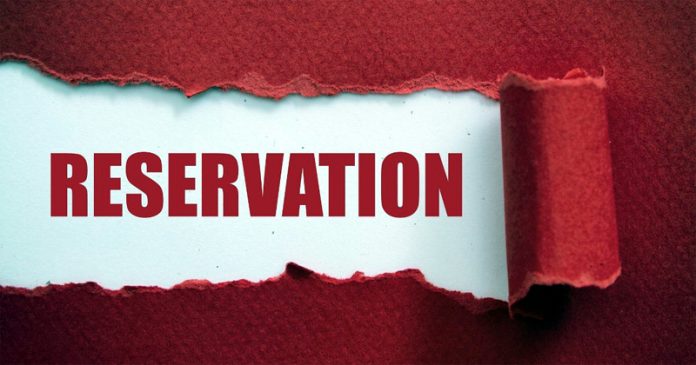OBCs get 8 pc reservations, 15 new castes added
*Physically Challenged Persons to be called PwDs
Sanjeev Pargal
JAMMU, Mar 15: In a major decision, the Jammu and Kashmir Government today accorded 10 percent reservations to Paharis and three other tribes taking total reservations under the Scheduled Tribe (ST) category to 20 percent and eight percent reservations to Other Backward Classes (OBCs) besides addition of 15 new castes in the list of OBCs as recommended by the Socially and Educationally Backward Classes (SEBC) Commission.
Reservations to Pahari Ethnic Tribe, Paddari tribe, Kolis and Gadda Brahmins were approved by the Parliament in its budget session in February. In the same session, the Parliament approved reservations to OBCs in Government jobs and educational institutions besides Panchayats and Urban Local Bodies (ULBs).
With today’s decision, the Government has upheld its commitment to Gujjars and Bakerwals that their share of 10 percent reservation will not be diluted while granting ST status to Paharis and three other tribes. The Gujjars and Bakerwals were already enjoying 10 percent reservation in Jammu and Kashmir under ST category.
Today’s proposals of reservation in which the OBCs got their reservation raised from four to eight percent in Jammu and Kashmir were approved by the Administrative Council headed by Lieutenant Governor Manoj Sinha and attended by Advisor Rajiv Rai Bhatnagar, Chief Secretary Atal Dulloo and Principal Secretary to LG Dr Mandeep K Bhandari.
It was on October 4, 2022 that Union Home Minister Amit Shah for the first time formally announced that the Government will accord ST status to the Paharis.
Officials said 10 percent reservation has been given to Pahari Ethnic Group, Paddari tribe, Kolis and Gadda Brahmins following their inclusion in the Scheduled Tribes Order as applicable to the Jammu and Kashmir.
Ten percent reservation to newly added tribes has taken overall reservation to STs to 20 percent.
“In order to ensure that both already notified and now newly added tribes get benefits of reservation equally and separately, the Administration Council approved an equal and separate percentage of reservation for them i.e. 10 percent each,’’ they said.
Paharis have large population in Poonch and Rajouri districts of Jammu region; and Baramulla and Kupwara districts in the Kashmir Valley besides some other areas while Paddari tribes are settled in Paddar area of Kishtwar. Koli and Gadda Brahmins have very small population.
Following abrogation of Article 370 of the Constitution of India, the STs, for the first time, were granted 10 percent reservation in the Jammu and Kashmir Legislative Assembly. In the House of 90, nine seats will be reserved for the STs.
Meanwhile, the Government has also extended eight percent reservation to the OBCs. Earlier, there was no reservation to OBCs in J&K but four percent quota existed under Other Social Castes (OSCs) category. The Parliament in its last budget session had approved reservation to OBCs in Government jobs and educational institutions besides Panchayats and Municipalities.
Besides, the Government has also approved inclusion of 15 new castes in the list of OBCs. It also approved change in nomenclature and synonymy of some castes as recommended by the SEBC Commission.
Sources said the OBCs are also likely to get eight percent reservation in Panchayats and Municipalities though such a decision is yet to be taken. Elections to Panchayats and Municipalities which were due to be held in October-November last year were delayed due to grant of reservation to OBCs.
The Administrative Council has, meanwhile, also accorded approval to replace the term Physically Challenged Persons or handicapped wherever appearing in the rules with the term Persons with Disabilities in conformity with the provisions of Rights of Persons with Disabilities Act, 2016.
“The amendments made today will fulfill the long pending demands of these communities regarding their right to adequate representation in Government jobs and professional courses to which they were hitherto deprived of, due to their social, educational and economical backwardness,’’ the officials said.


